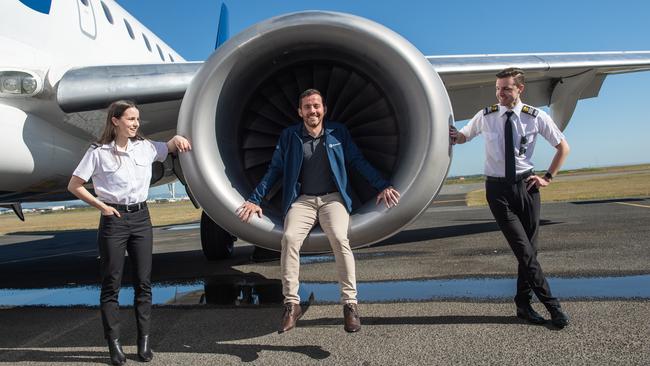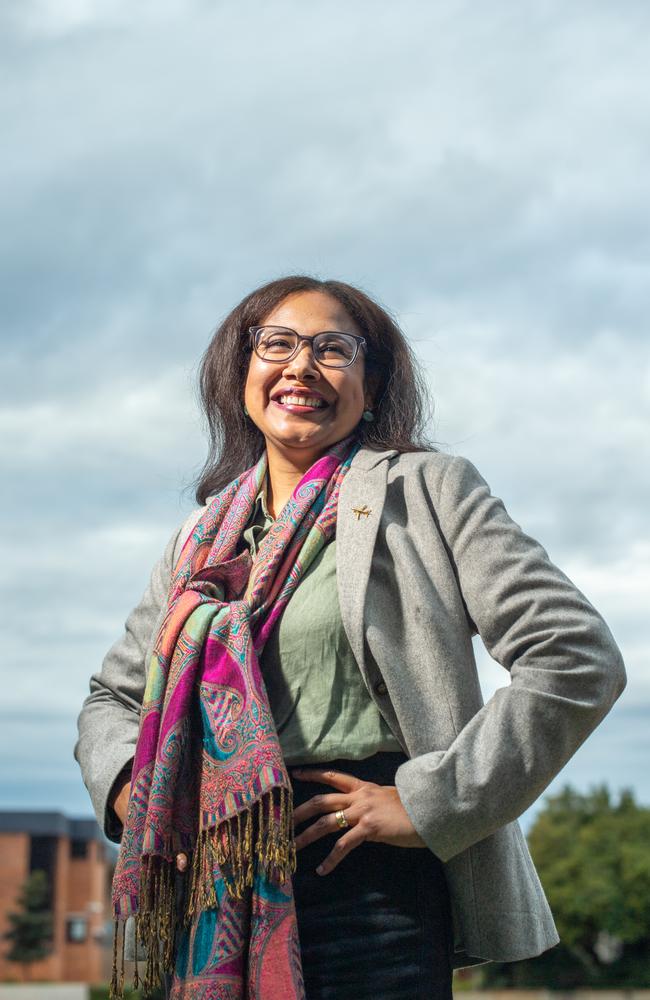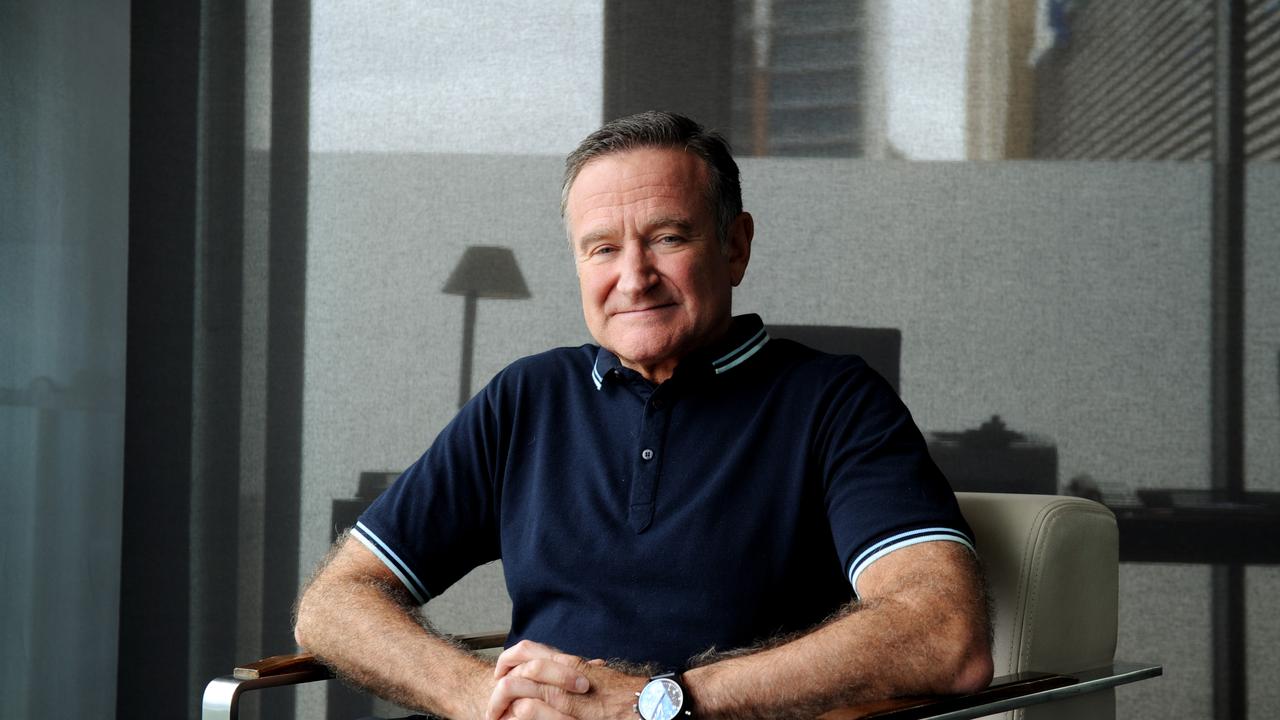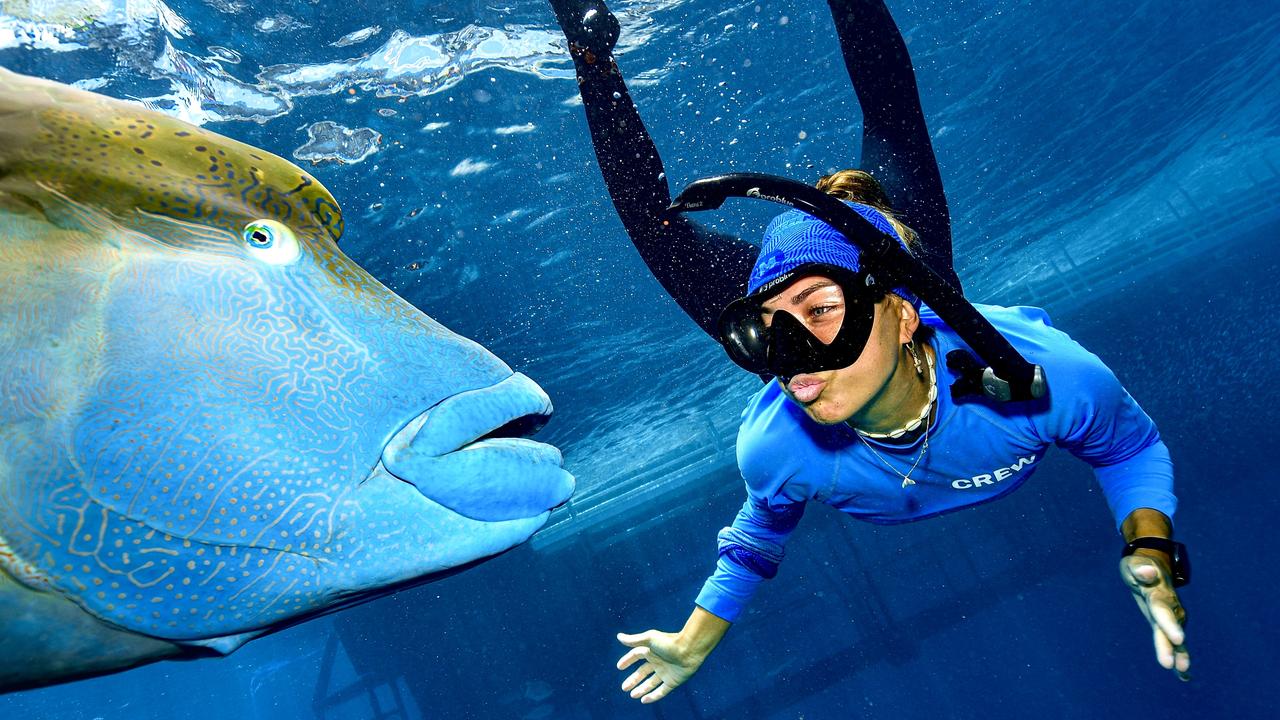‘We simply need more’: Aviation industry in dire need of more pilots as travel demand surges
Post-Covid, Australia’s aviation industry needs pilots more than ever. A unique university course aims to meet that demand.

QWeekend
Don't miss out on the headlines from QWeekend. Followed categories will be added to My News.
Jamielle Rogers and Matthew Redway take their seats in the cockpit of a Boeing 737-800 commercial aircraft. Today, Rogers will be captain and Redway her co-pilot. The University of Southern Queensland aviation students will be flying an extended circuit to the west of Brisbane, putting their flight skills to the test.
“I haven’t done this since September,” Rogers, 19, laughs as she familiarises herself with the controls.
Before long, they’re taxiing down the runway and taking off into the clear blue sky, taming the giant flying machine with the knowledge and know-how they’ve attained in their training.
Moments after levelling off, thick clouds envelop the windshield. “Lucky you’ve got your IFR rating,” Redway, 21, teases. Having the skills to fly blind and rely solely on your instruments is essential for pilots.
“Without it, if you spend more than two minutes in a cloud, your chances of getting out alive are very slim. Could you hit the pause button please?” Redway says.
The clouds and landscape freeze. The flight simulation in one of UniSQ’s state-of-the-art simulators is over.

“I remember the first time I went up in a helicopter. It was over the Great Barrier Reef and it was exhilarating,” Rogers says.
After graduating from high school, Rogers decided to pursue her interest in flying by enrolling in a Bachelor of Aviation majoring in Flight Operations at UniSQ. Now in her second year of university, she’s considering a variety of career options in the aviation industry.
“University was always the road I wanted to go down. I wanted to learn what goes on behind the scenes in airline operations. There’s a significant number of roles available and safety assurance is an area I’m interested in,” she says.

This year, Rogers received the Macarthur Job Scholarship Award to attend the Australian and New Zealand Society of Air Safety Investigators seminar to enhance her knowledge of air safety investigations. While exploring her options, she’ll complete the flight school training component of her degree next year.
Recently, Redway was accepted into Flight Training Adelaide Queensland, based at Wellcamp Airport in Toowoomba. He starts later this year.
“Ever since I was a little kid I’ve enjoyed being around aircraft. I remember coming home one day when I was about 12 and telling my parents I wanted to be a pilot,” he says.
After five years in the Australian Air Force Cadets, Redway decided to undertake a Bachelor of Aviation majoring in Flight Operations at UniSQ.
“The Covid period really made me think about different options in the aviation industry. During the downturn there were a lot of pilots out of a job. With this degree, I’ve realised there’s a lot more to aviation than piloting. If something were to happen, there’s a backup for me and I could potentially move into a management role,” he says.

As the only university in Queensland to house modern flight simulators for its students, UniSQ has an edge. The $1m simulators are at their Springfield and Toowoomba campuses. They replicate the cockpits of a Boeing 737-800 and Airbus A320, giving students the opportunity to pilot an entire flight with all the necessary checks and procedures required under both normal and abnormal conditions. Day, night, rain, thunder, lightning, turbulence, engine failures – almost anything that can happen or go wrong in the air can be programmed, causing the cockpit to start shaking violently, beep loudly or convey the illusion of nose-diving.
UniSQ associate professor in aviation and logistics, Tarryn Kille, 44, says students are given simulated commercial flying experience in the first-year of study.

“Our simulators allow students to access the two major manufacturers and aircraft used in air transport around the world. We’re using them in our curriculum to allow students to understand what their futures may hold in terms of the multicrew operating environment and flight deck systems. We give them the opportunity to learn from qualified airline captains who come from the industry and sit with the students in the simulator,” Kille says.
The flight simulators aren’t the only thing that make UniSQ’s aviation offerings unique.
“Our programs are supported by a really experienced and high quality teaching team who have a combination of both academic and technical qualifications and experience in industry in leadership and management roles across a range of sectors. They provide a wealth of opportunities for our students and bring their real-world experience directly into the teaching curriculum, not to mention their strong networks in the industry,” Kille says.

When air travel ground to a halt during the pandemic, UniSQ got to work revitalising and future-proofing their programs.
After completing a sector analysis and engaging industry executives, they further developed the safety and business components of their curriculum.
“Aviation can’t exist on its own. It works within a really complex socio-technical environment that involves geopolitics, economics, societal demands, consumer demands – there are so many aspects that aviation and future aviation professionals need to be aware of,” Kille says. “Pilots now and into the future are not just pilots. They’re safety managers, team leaders, operations managers and business decision makers. Everything they do has an impact both internally and externally.
“They’re mentors to future aviators and connected quite strongly to the customer because they’re on the frontline, so they’re brand ambassadors as well and have a big impact on the customer experience. There’s a change now in terms of what is expected in the industry.”
With staff and skills shortages presenting major challenges for the aviation industry post-pandemic, Kille says there are more opportunities than ever to become part of it.
“We’re getting massive consumer demand for flight travel all across the world. We simply need more aviation professionals including pilots, engineers and air traffic controllers,” she says.

Peter Miani, 38, received his Master of Aviation from UniSQ in 2021. A licenced aircraft engineer, he was previously in the Air Force for 12 years as an aircraft maintenance engineer. In 2016 he moved to GE Aerospace to work as a field service engineer supporting military customers and later large commercial airlines. Gaining his Masters qualification was an important next-step in his career.
“I was a bit one-sided. Coming from an engineering background, I wanted to enhance my commercial and business acumen. Doing a Master in Aviation met that requirement and gave me the knowledge base and understanding of the commercial side of the aviation business I needed,” Miani says.
Juggling full-time work and study is never easy, but Miani says it has been well worth the effort.
“Even though it felt like a real slog at times, you are building your knowledge, experience and understanding of how commercial decisions get made,” he says.
As borders reopened and flights resumed, Miani was involved in getting aircraft that had been in storage in Alice Springs during Covid back into service.
“Like any mechanical system, they don’t like sitting still. There’s a lot of maintenance required to keep them in optimal condition. Once you are ready to bring them back into service, there’s a lot of testing and servicing to make sure they’re safe and ready to operate. The majority are back in service,” he says. As for advice on an aviation career, Miani says: “Having a broad skillset is important for career viability and being able to pivot as the industry changes.”
In partnership with UniSQ




